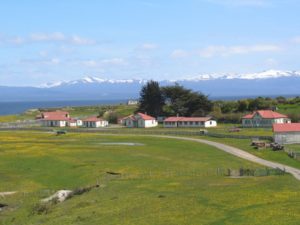
If ever there was a good will ambassador, Tatiana was it, and in less than a minute had doña María talking about her life, her kids, her ancestors, her water colors, and how they ended up living here.
She had been raised on an estancia further north and had never attended school a day in her life. She never knew her real name, the one from her people, known as the Ona or Onawo; she only remembered being called María and she didn’t know enough at the time to ask or complain. At fifteen, she had gone into town on errands, as she normally did once a month, along with several other domestics, each with a list of things to do or get and happened to see Antonio riding into town on an old gaunt horse.
More importantly, he’d also seen her in the back of the old truck she was riding in.
“He rode up to us girls bold as brass asking what estancia we belonged to. I told him to read the name on the side of the truck,” she said, and laughed. “You’d a thought he owned one himself, by the way he acted,” she added and kept chuckling.
“He looked us over, taking his time, but in the end, looked at the side of the truck, then finally gave us a look so sour it would make a lemon pucker He never said a word after that, but turned around and galloped off. I remember us girls laughing and laughing as he rode away. It was the highlight of our day.
“I was surprised he didn’t say another word, not to us anyway, until later that day when he showed up at the estancia asking for work, claiming to be an esquilador, or sheep sheerer with experience. We even laughed at that. I can’t believe how mean us girls were,” she added, not showing any signs she regretted it. “I guess we were just girls.”
Dona María continued telling us her story while don Antonio listened quietly, smiling occasionally, enjoying his wife’s telling of it, but just as in her telling of it, not saying a word.
From In the Land of Fire.

